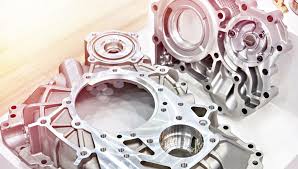Mobile:+86-311-808-126-83
Email:info@ydcastings.com
Motor Impeller Design for Enhanced Performance and Efficiency in Fluid Dynamics Applications
Understanding Impellers for Motors Key Components in Fluid Dynamics
When it comes to fluid dynamics, impellers play a critical role within various types of motors, particularly in centrifugal pumps and turbine systems. An impeller is a rotating component designed to transform rotational energy, typically from an electric motor, into kinetic energy by accelerating the fluid. In this article, we will delve into the significance of impellers, their working principles, and the factors to consider when selecting them for specific motor applications.
The Working Principle of Impellers
Impellers work based on the principle of centrifugal force. When the impeller rotates, it draws fluid into its center and expels it outward through a series of blades. The design of the impeller directly impacts the efficiency and performance of the motor. As the blades rotate, they impart velocity and pressure to the fluid, resulting in increased flow rates that are crucial for applications like water supply, HVAC systems, and industrial processes.
The shape, size, and material of the impeller influence how well it performs. Standard configurations include open, semi-open, and closed impellers. Open impellers have no shroud, making them suitable for handling viscous fluids or fluids containing solids. Closed impellers, on the other hand, are enclosed by a front and rear shroud, making them ideal for high-efficiency applications with clean fluids.
Factors Influencing Impeller Selection
When selecting an impeller for a specific motor application, several factors must be considered
1. Fluid Characteristics The type of fluid being pumped—whether it is clean, viscous, or contains solid particles—should heavily influence the choice of impeller design. For thicker fluids, open impellers are often preferable.
impeller for motor

2. Flow Rate and Head Requirements Understanding the desired flow rate and the required head (the height the fluid needs to be pumped) is essential. Different impeller designs can achieve varied flow rates and pressures, so matching these performances to your application is vital.
3. Motor Compatibility The impeller must be compatible with the motor in terms of size, speed, and power. A well-matched impeller-motor system will ensure optimal efficiency and longevity.
4. Material Considerations The material of the impeller should withstand the corrosive nature of the fluids being pumped. Common materials include stainless steel, brass, and various plastics. The selection depends on factors like temperature, pH levels, and the presence of abrasive particles.
5. Efficiency and Maintenance Impellers should be selected for their efficiency. An efficient impeller can reduce energy costs and increase the lifespan of the motor. Additionally, ease of maintenance is an important consideration. Designs that allow for easy cleaning and replacing can significantly decrease downtime and operational costs.
Applications of Impellers in Motors
Impellers are utilized across various industries. In the water treatment sector, they are essential for mixing and aeration processes. In HVAC systems, they help in circulating air efficiently. In chemical processes, impellers facilitate the movement of corrosive substances safely. Their diverse applications have made them indispensable components in motor-driven systems.
Conclusion
Impellers are crucial components in motor applications, impacting the efficiency and effectiveness of fluid movement systems. By understanding the principles governing their operation and the considerations for their selection, engineers can significantly optimize motor performance. As technology advances, innovations in impeller design and materials will continue to enhance their effectiveness, making them a key focal point in the development of motor-driven systems.
-
What Makes Stainless Steel Pump Casting Essential for Modern Industries?NewsJul.14,2025
-
Revolutionize Your Engine Maintenance with Premium Aluminum and Cast Iron ComponentsNewsJul.14,2025
-
Precision Flow Engineering Starts with the Right Pump ComponentsNewsJul.14,2025
-
Maximize Efficiency: Explore Reliable Containment and Crop SolutionsNewsJul.14,2025
-
Discover Superior Performance with Advanced Turbo ComponentsNewsJul.14,2025
-
Boost Fluid Dynamics with Precision-Engineered Pump ComponentsNewsJul.14,2025











